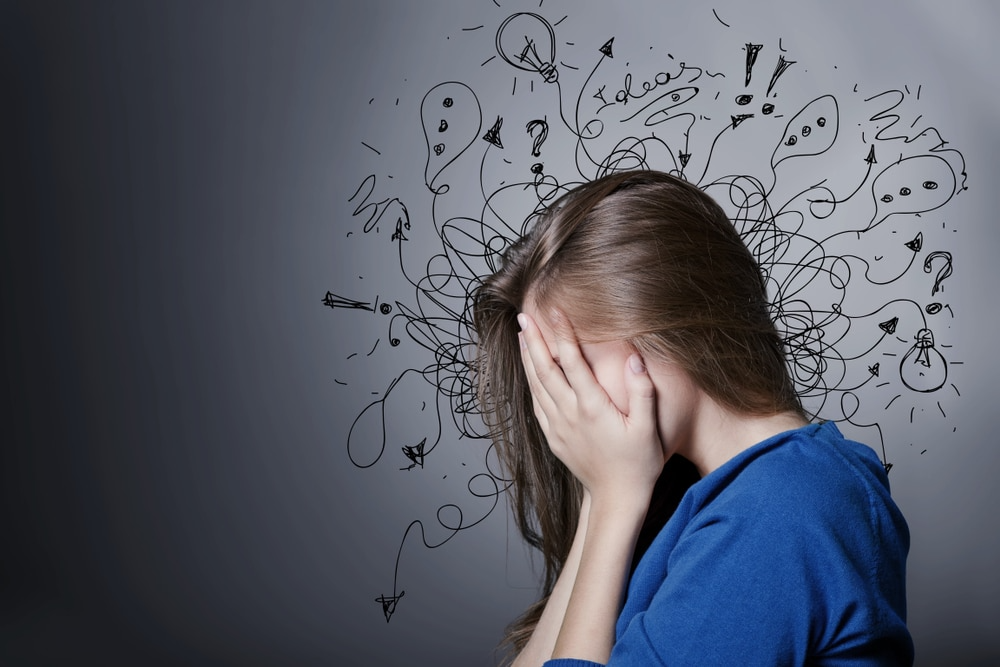Anxiety is a common and often necessary human emotion that helps us respond to situations of danger and stress. However, when the anxiety becomes chronic, overwhelming, and interferes with everyday life. So it becomes an anxiety disorder. Millions of people around the world suffer from anxiety disorders. Yet many people struggle in silence because of misunderstanding and stigma.
Understanding anxiety, its symptoms, and its causes is important for managing and controlling it. This article will take a deep dive into anxiety disorders. Describe their types, symptoms, causes, and effects on daily life. If you or someone you know is experiencing anxiety, seeking professional help from counseling services like State of Mind Counseling can be an effective step towards recovery.
1. Understand Anxiety: A Deep Dive
Anxiety is the body’s response to stress, uncertainty, or danger. Although short-term anxiety is a natural part of life, constant and excessive anxiety can indicate an anxiety disorder.
Difference Between Common Stress and Anxiety Disorders
Common Stress:
- Temporary and situational.
- Leave directly related to a specific event (e.g., job interview, exam, etc.)
- Ends after the situation is resolved.
Anxiety Disorders:
- Persistent, excessive, and disproportionate anxiety.
- May occur without a clear cause.
- Interfering with daily work.
Common Misconceptions About Anxiety.
- Anxiety is just thinking too much. Anxiety doesn’t just affect the mind, it affects the body as well.
- Anxious people are weak. Anxiety is a medical condition. It’s not the character’s fault.
- Avoiding stimulants will cure anxiety. Avoidance often makes a problem worse instead of solving it.
2. Types of Anxiety Disorders
Anxiety disorders come in different forms. Each with their own unique characteristics.
1. Generalized Anxiety Disorder (GAD)
- Constant worry about the events of everyday life.
- Symptoms include restlessness, muscle tension, and difficulty concentrating.
- Often associated with perfectionism and overthinking.
2. Panic Disorder.
- Symptoms of sudden and severe episodes of panic attacks.
- Symptoms include chest pain, shortness of breath, dizziness, and heart palpitations.
- Those places should be avoided. where the previous attacks took place.
3. Social Anxiety Disorder (SAD)
- Fear of being judged or shamed in social situations.
- Avoiding social gatherings, difficulty speaking in public places.
- Often associated with low self-esteem.
4. Specific Phobias
- Extreme fear of certain things (e.g., height, spiders, flight)
- Leads to avoidant behavior and anxiety when exposed to stimuli.
5. Obsessive Compulsive Disorder (OCD)
- Obsessive-compulsive disorder characterized by repetitive, unwanted thoughts (obsessions) and behaviors (compulsions)
- Common compulsions include excessive hand washing, frequent checking of locks.
6. Post-Traumatic Stress Disorder (PTSD)
- Anxiety symptoms arising from past traumatic experiences.
- Include flashbacks, nightmares, and emotional apathy.
3. Common Symptoms of Anxiety
Anxiety presents itself in different ways. It affects the physical, emotional and behavioral aspects of life.
Physical Symptoms
- Increased heart rate and palpitations.
- Sweating and trembling.
- Dizziness and nausea.
- Shortness of breath.
- Headaches and muscle tension.
Emotional symptoms
- Excessive fear or anxiety.
- Anxiety and depression.
- Feeling on the edge or feeling restless.
- Difficulty in concentration.
Behavioral Symptoms
- Avoiding situations that cause anxiety.
- Difficulty sleeping or insomnia.
- Over-planning or over-assuring.
4. Causes of Anxiety: Why Does This Happen?
Anxiety does not have a single cause; it is a combination of genetic, environmental, and psychological factors.
1. Biological Factors
- Genetics: A family history of anxiety disorders increases the likelihood of developing it.
- Brain chemistry: Imbalances in neurotransmitters (serotonin, dopamine, GABA) can contribute to anxiety.
2. Environmental Factors
- Trauma and abuse: Childhood trauma, violence, or neglect can lead to anxiety disorders.
- Chronic stress: Work pressure, financial instability, and family problems can increase anxiety.
3. Lifestyle and Habits
- Poor diet: High sugar, processed foods and caffeine can aggravate the symptoms of anxiety.
- Lack of sleep: Lack of sleep affects the brain’s ability to regulate emotions.
- Substance abuse: Alcohol and drugs may seem calming at first but can worsen anxiety in the long run.
4. Psychological Effects
- The negative thought patterns: Constant self-doubt, destruction, and perfectionism contribute to anxiety.
- Low self-esteem: Feeling inadequate or fear of failure can intensify the symptoms of anxiety.
5. How Anxiety Affects Everyday Life
Anxiety can affect many aspects of a person’s life.
1. The Impact on the Relationship
- Anxiety can make it difficult to communicate effectively. This can lead to misunderstandings.
- Fear of rejection can cause individuals to disengage from social interactions.
2. Workplace and Educational Challenges
- Difficulty concentrating and completing tasks.
- Avoiding work or school due to excessive anxiety,
- Fear of speaking in meetings or appearing in class
3. Physical Health Problems.
- Chronic stress from anxiety can increase the risk of heart disease, digestive problems, and weakened immune function.
6. Anxiety in Different Age Groups
1. Anxiety in Children and Adolescents
- School-related stress, social pressure, and fear of failure
- Symptoms include abdominal pain, cramping, or difficulty sleeping.
2. Anxiety in Adults
- Work-related stress, financial problems, relationship problems,
- Often manifested as constant over-thinking and insomnia.
3. Anxiety in the Elderly
- It can present as health concerns, fear of death, social isolation,
- Irritability, forgetfulness, or excessive worry for small things.
7. Self-Help and Coping Strategies
- Mindfulness and Meditation: Helps to regulate breathing and control negative thoughts.
- Cognitive Behavioral Therapy (CBT) restores negative thinking patterns.
- Journaling: Writing down thoughts can help manage the triggers of anxiety.
- Exercise: Physical activity releases endorphins, reducing stress.
- Limiting caffeine and alcohol: Stimulants can worsen the symptoms of anxiety.
For professional guidance, State of Mind Counseling offers tailored therapy to manage anxiety effectively. Anxiety is a common but treatable condition.
Final thoughts
By recognizing its symptoms and understanding its causes, individuals can take proactive steps towards management and recovery. Whether through self-help strategies or through professional counseling, relief is possible. If stress is interfering with your daily life, seeking professional help can provide the necessary tools to regain control.
For expert help, see State of Mind Counseling today.
The Frequently Asked Questions
1. Can anxiety go away on its own?
Mild discomfort may be reduced. But chronic anxiety often requires professional anxiety treatment.
2. How do I know if I have an anxiety disorder?
If your anxiety is persistent, excessive, and interferes with daily life, it can be a disease.
3. What is the fastest way to reduce stress?
Deep breathing, grounding techniques, and exercise can provide immediate relief.
4. What foods can cause anxiety?
Yes, too much sugar, caffeine, and processed foods can worsen the symptoms of anxiety.
5. Where can I get help?
State of mind counseling provides occupational therapy for the management of anxiety. Please don’t forget to leave a review.








